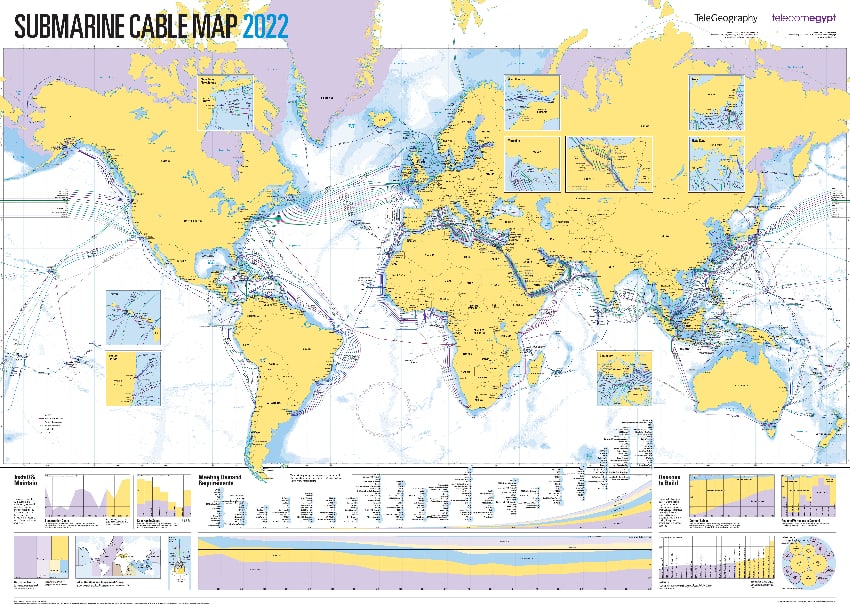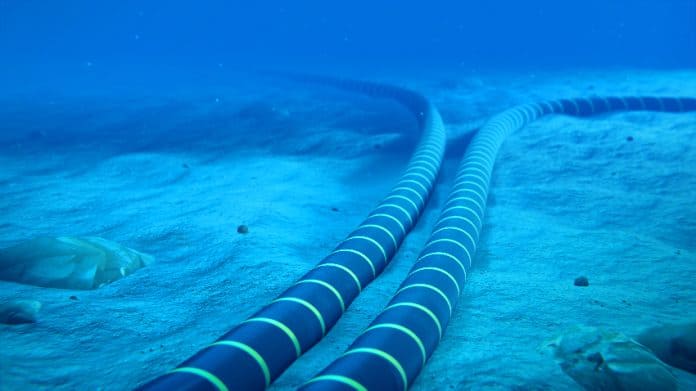Telecommunications company Gold Data will invest $150 million to develop a “digital highway” in the gulf of Mexico to link its digital infrastructure in Miami with its data centers in Mexico City, Cancún, and Querétaro. This will take the form of a 1,899 kilometer submarine cable, which will be composed of ten pairs of fiber and will have a capacity of 250 terabytes per second (TBPS).
Submarine cables are used for international internet connections. Globally, there are 486 similar active cable systems connecting 1,306 landing sites (or stations). Gold Data’s “digital highway” will be the first cable to land in Mexico in over 20 years. The Arcos cable system connecting Tulum and Cancún with 22 other cities surrounding the Caribbean sea was built in 2001. The Pan-American Crossing (PAC), built in 2000, connects the Pacific Coast in the U.S. to Mazatlán and Tijuana before continuing to Central America.
Submarine cables are laid using specific ships capable of laying the cable on the seabed. While satellites are also used to transmit data, they are more expensive and less efficient than cables.
The submarine cable is the final stage of Gold Data’s business plan. Already, it has an underground network connecting its data centers within Mexico.

“Our state-of-the-art network topology is revolutionizing connectivity in Mexico, reducing latency by up to 35%, a key factor for businesses and content providers seeking reliable, low-latency, high quality connectivity” the company said.
“The expansion of this network to the United States will be a game changer for Mexico’s fast-growing innovators.”
Gold Data specializes in providing direct connectivity throughout the Americas and the Caribbean. It currently connects 17 U.S. cities with 35 countries in Latin America and the Caribbean.
The companies Orange Marine, Alcatel Submarine, and Ciena will partner with Gold Data to carry out the construction.
The submarine cable is projected to facilitate growth in the telecommunications industry while compensating for the country’s aging traditional communications systems. It will also improve digital efficiency and benefit several sectors, including finance, health and retail.
The cable is expected to be complete in 2025 and has a predicted lifespan of 25 years.
With reports from El Economista, AM Querétaro, and Expansión
